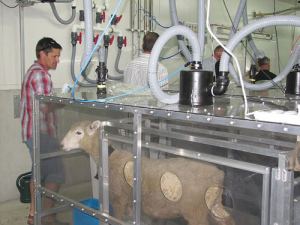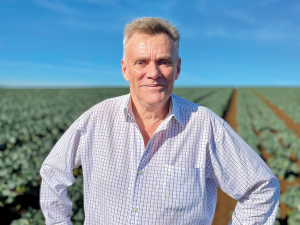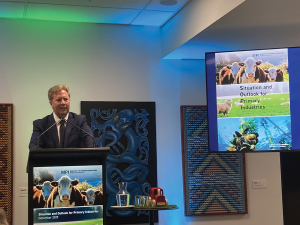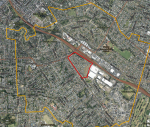The Parliamentary Commissioner for the Environment (PCE) wants to see an evidence-based debate on how New Zealand should deal with greenhouse gas emissions from agriculture.
Simon Upton late last week released a 44-page report on the subject with a special section relating directly to agriculture.
He hopes the report, which is technical and not necessarily comprehensible to the average person, will help promote debate “grounded in science” on reducing methane emissions.
“This research is being released to inform the current debate about how different greenhouse gases should be treated in the context of the Government’s proposed Zero Carbon Bill,” Upton says.
“I am not endorsing a specific climate target or approach for reducing livestock methane or other agricultural greenhouse gas emissions, but would like to see an evidence-based debate on how best to approach this important task.”
Upton, a Minister for the Environment in the 1990s, commissioned this report to provide information on global warming that might result from future emissions from livestock in NZ, under different assumptions and scenarios.
The report seeks to answer three main questions: Given our past emissions what would be the warming contribution if the status quo prevailed? What additional warming might be expected? And what annual reductions in methane emissions would be required to avoid additional warming contributions from NZ by 2030 or 2050?
In the report, the PCE states that while most countries have to focus on carbon dioxide, NZ has to think harder about the contributions from methane and nitrous oxide from agriculture; these make up a particularly high proportion of our total greenhouse gas emissions.
The report notes that methane is the most potent of the greenhouse gases and the warming caused by it occurs during the first few decades, whereas carbon dioxide lingers in the atmosphere for thousands of years.
The key findings from the modelling show that if NZ’s livestock methane emissions held steady at 2016 levels, then within about 10 years the amount of methane in the atmosphere from that source would level off. However, the warming effects of that methane would keep rising, at a gradually declining rate, for at least a century.
It notes that if NZ wishes to ensure that methane from livestock causes no additional contribution to warming beyond the current level, emissions will need to be reduced by at least 10-22% below 2016 levels by 2050, and 20-27% by 2100.
The report notes the impact of current research in NZ into greenhouse gas emission and says:
“Through breeding more efficient animals and improving farm management, the emissions intensity of NZ’s agricultural production has improved about 1% per year over the last few decades. If production were held constant, and efficiency gains of 1% per year continued, total emissions of methane from livestock would reduce.
“We did not model this scenario, but the impact would be likely to cause additional warming for many years to come and this is, in part, the legacy of past emissions.”
In essence, the report provides the data for a debate on greenhouse gas emissions in NZ for scientists and scientifically literate farmers.











